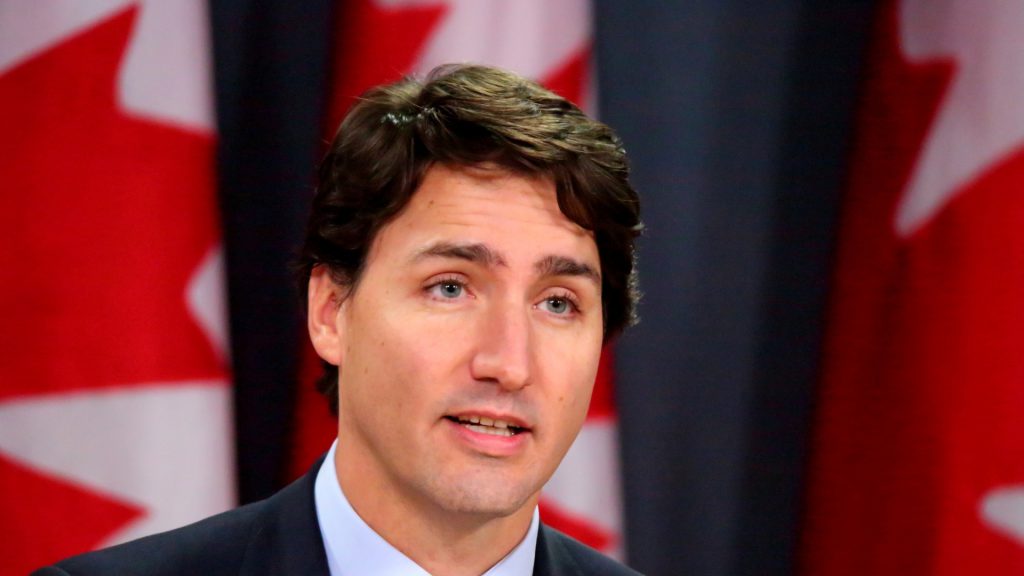
Published March 6, 2019
The world leader many Americans wish they had, Canada’s Justin Trudeau, is in political trouble. And yet, even in the midst of scandal, Trudeau offers a valuable lesson for the political left in the United States.
Trudeau swept into office with a clear majority in 2015. As head of the long-dominant Liberal Party, his youth (he was 43 when he took office) and his ostentatious cultural liberalism captured a certain mood. He enjoyed a long honeymoon at first, with his Liberal Party hitting nearly 50 percent in the polls by mid-2016. Even after he came back to earth, the feminist, green, pro-choice Trudeau captured liberal hearts across the globe and seemed certain to win reelection.
That all came crashing down this year over the grubbiest of matters: an alleged attempt by his staff to influence prosecutors in a corruption case against an important Liberal Party donor. SNC-Lavalin, a large company based in the Liberal Party heartland of Quebec, was charged in 2015 with giving millions of dollars in bribes to the Libyan government between 2001 and 2011. A conviction would leave it ineligible to bid on Canadian government contracts for a decade, potentially bankrupting the firm. That’s when Trudeau’s government allegedly intervened.
According to testimony by Jody Wilson-Raybould, the former attorney general whose resignation last month sparked the political scandal, Trudeau and his aides repeatedly implored her to defer the prosecution of the company — a possibility that itself became available only after Trudeau’s government changed the law following the firm’s indictment — to help the party in the upcoming Quebec elections. After she refused to do so, Trudeau demoted her, leading to her resignation.
Wilson-Raybould’s testimony punctures Trudeau’s carefully crafted image as a modern, honest politician. The pure power politics on display would be ham-handed by American standards; it is positively shocking by Canadian measures. Her status as the first indigenous attorney general was a point of pride for someone who pledged reconciliation with Canada’s First Nations. Now his reputation as a person who could come to terms with Canada’s past lies in tatters.
The crisis is spiraling out of control. A second minister, Jane Philpott, resigned from Trudeau’s cabinet this week citing the scandal. Trudeau’s former chief aide, Gerald Butts, resigned six days after Wilson-Raybould stepped down and testified Wednesday about his role in the affair. A recent poll shows that more than half of Canadians think Trudeau should resign from office, and the opposition Conservative Party has opened up a nine-point lead over Trudeau’s Liberals in advance of elections this fall.
Americans rarely pay attention to Canada, but this turmoil has significant implications and lessons for the U.S. political system. Democrats must look north with envy over the willingness of Canadians to shift party allegiance based on ethical shortcomings. If pro-Trump Americans would have a similar reaction to President Trump’s ethical misdeeds, his base might be considerably smaller than it is now.
That isn’t the case, however, because too many Americans are scared of what would happen if a strongly progressive Democratic Party were to take power. The Green New Deal and Medicare-for-all frighten people concerned about government power and taxes; proposals to abolish the Immigration and Customs Enforcement agency frighten people concerned about security and immigration; opposition to religious-liberty measures and support for unregulated late-term abortions frighten people concerned about those issues. Democrats keep harping about Trump’s ethics, but many people wonder if those concerns are important enough to justify empowering a party that has embraced such a left-leaning agenda.
Party politics in Canada, however, is much less ideologically polarized than it is here. Should the Conservatives come to power, Canada would see a rightward shift in policy. For example, under the leadership of Andrew Scheer, the Tories have embraced a clear center-right economic agenda including scrapping Trudeau’s carbon tax. Conservative governments in Canada’s provinces have also scrapped carbon taxes in their regions, proving that even in Canada, fighting climate change is a very low public priority.
But Canadians upset by Trudeau are not scared enough by the Tories to stick by an ethically challenged leader or upending their party system. Nor have Trudeau’s liberal followers notably shifted to back the country’s left-wing party, the New Democrats.
Trudeau and the Liberal Party might yet survive. Canada’s election occurs in October, and seven months is a lifetime in politics. But Canadians’ reaction to his crisis shows that ethics and moderation both matter. We shall see whether Democrats heed this example.
Henry Olsen is a Washington Post columnist and a senior fellow at the Ethics and Public Policy Center.








